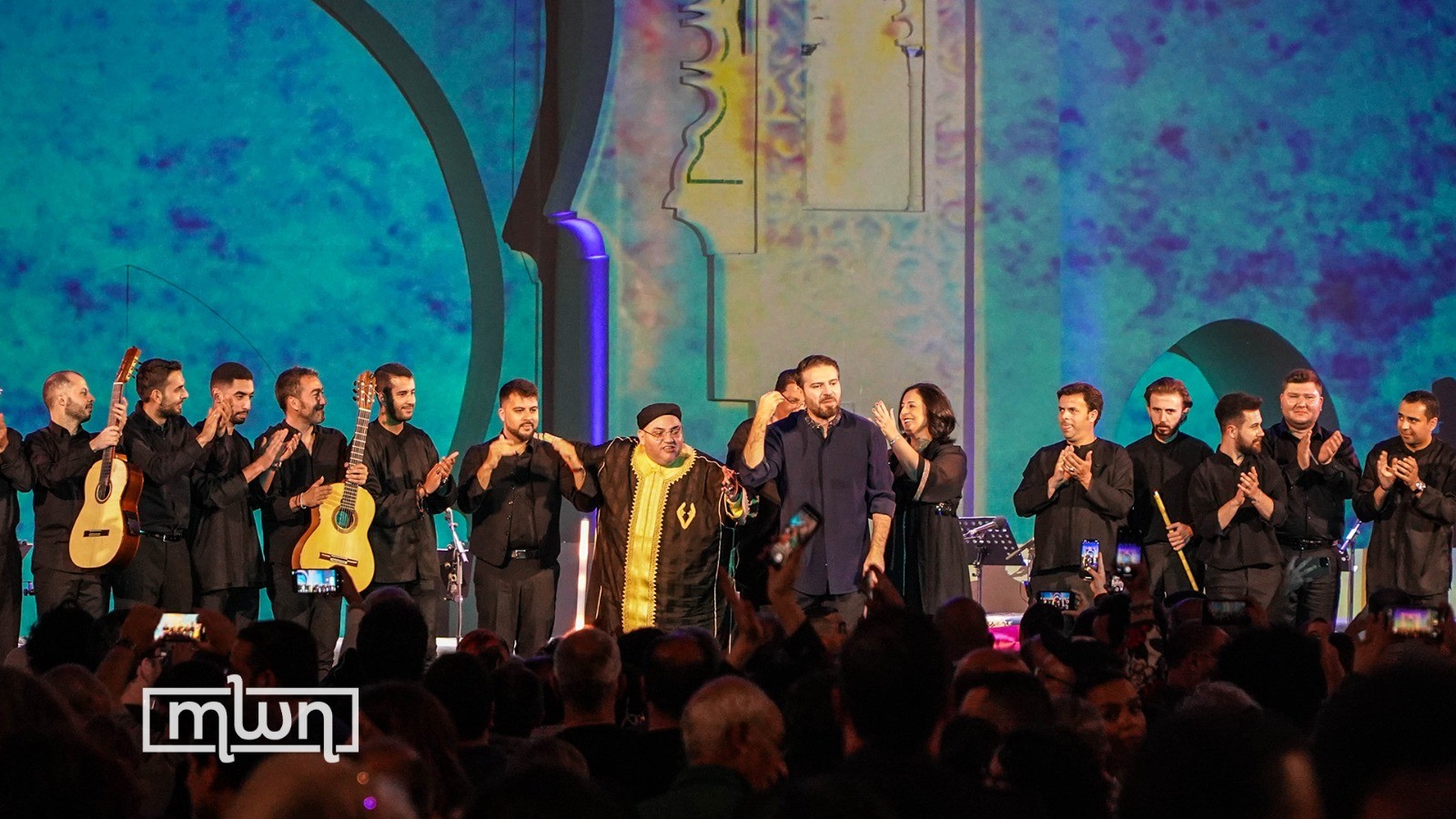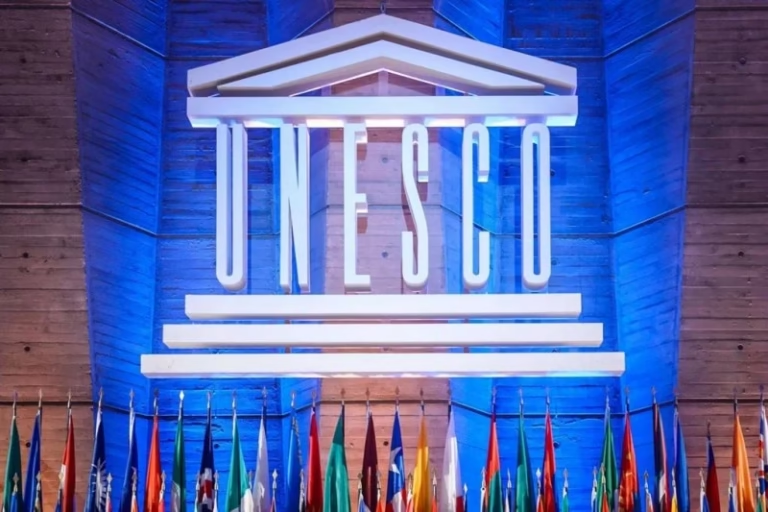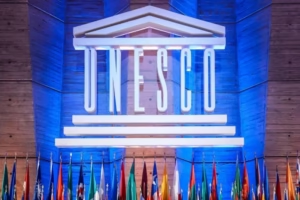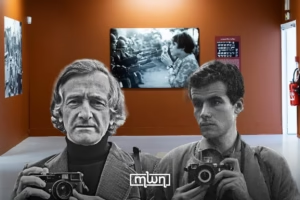Fez – As the strength of the evening Maghrebi sun waned, the 23-strong Ensemble Madalena, also known as the Women’s Choir of the Occitan Countries, took to the stage yesterday at the Jnan Sbil, a 19th-century public garden just outside of Fez’ Old City.
The performance was part of the lineup for day two of Fez’s World Sacred Music Festival, which kicked off on May 24.
Under the direction of singer and composer Manu Theron, the choir captivated audiences with a contemporary interpretation of the “Cantilena of Sancta Maria Magdalena” from Marseille, a sacred chant whose score was lost more than two centuries ago.
Audience members gathered on carpets and chairs on a canvas-sheltered lawn in front of the stage swayed, clapped and danced to the complex song tapestry of French, Spanish and Latin.

Madalena Ensemble and the Ensemble Haïdouss d’Oulmès
As the performance drew to a close, Moroccan bendir players from the Ensemble Haïdouss d’Oulmès joined the choir in the final act, bringing Maghrebi rhythms to religious choral singing in a spell-binding display of inter-religious harmony.
One of the audience members came all the way from Canada, and spoke to Morocco World News (MWN) about their experience. “This is the best way to celebrate our culture, to show off our music, our songs, particularly the culture that is deep rooted in Morocco, the Amazigh culture, and more,” he said. “The fact that people from Spain and from Morocco, they work together, they sing together, they make music together, they perform together and they show how cultures are so close to each other”.
As the night drew in, crowds began gathering early at the entrances to the Bab Makina for one of the most highly anticipated performers of this year’s festival – world-renowned Sufi musician Sami Yusuf.
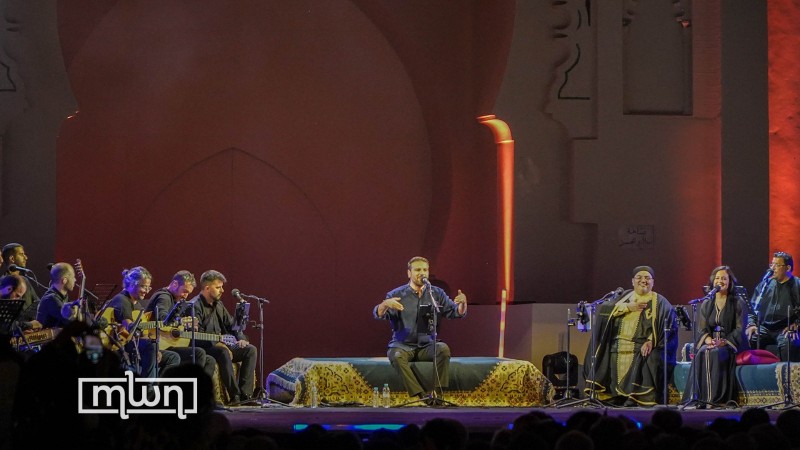
Sami Yusuf and his ensemble captivate festival attendees
During the act, scenographic lights turned the backdrop of Bab Makina into stunning scenes of Persian and Andalusian architecture.
Sami Yusuf performed with an all-star international ensemble, including Azerbaijani balaban (a traditional wind instrument) player Magsad Azizov. He enchanted a sold-out crowd and played to a full house where it was standing room-only in the wings.
During this vibrant and colorful performance which lasted around an hour and a half, the audience was treated to a diverse vocal tapestry including songs in Arabic, Spanish, Turkish, and English. The public also enjoyed songs from Sami Yusuf’s personal rich repertoire, including “Ilahana ma aadalak” and “Madad”.
Additionally, the performance featured pieces from Moroccan heritage, notably the famous Andalusian Arabic song in the “Mowachah” tradition called“Lama bada yatathana,” as well as the Sufi poem “Fiyachiya”.
Sami Yusuf was accompanied by other notable Moroccan singers and musicians, including singers Ismail Boujia and Nabyla Maan, as well as guitarist Tariq Hilal. The audience was introduced to new compositions created with incredible flamenco musicians, bringing a unique fusion of East-West musical traditions in the spirit of this year’s festival theme.

